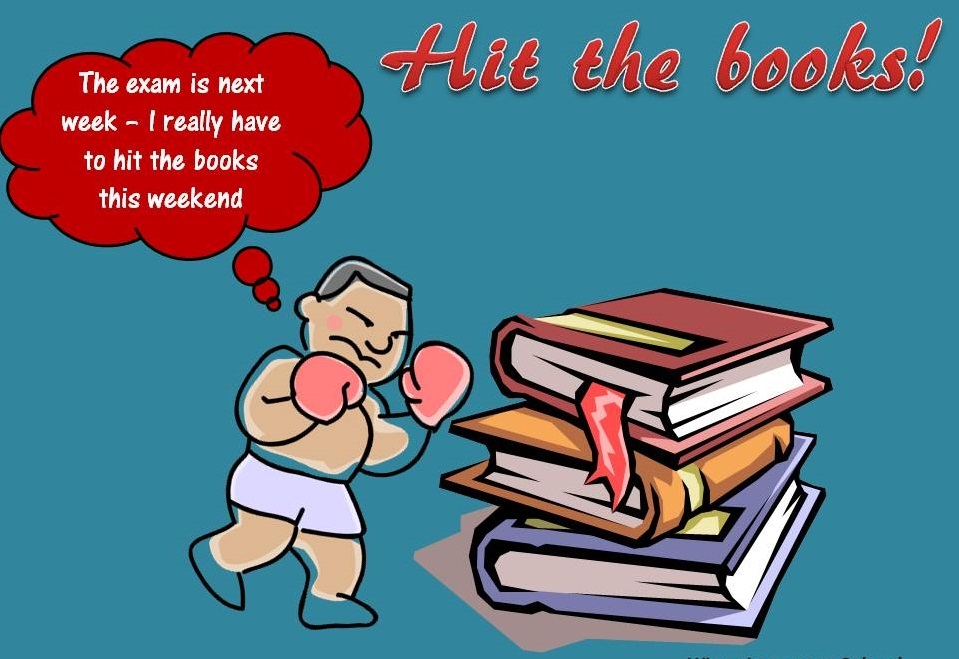Top 50 Most Popular English Idioms That You Talk Everyday
 |
| The Most Popular English Idioms That You Talk Everyday |
| Table of Contents |
Idioms are phrases that enable us to describe a precise circumstance in a unique, imaginative manner. They increase people's understanding of a language and exchange cultural and historical knowledge. Idioms create some distinguishing characteristics that can vary from language to language. What's even more intriguing is that idioms occasionally reflect particular cultural traditions and personalities.
Idioms were created to convey a particular meaning that is often quite precise but for which there is no exact word. The clever or artistic ones usually stick out, and what sticks out gets repeated in a meme-like way.
Here are 50 English idioms that everyone should know:
English Idioms with Their Meanings and Examples
1. Turn a blind eye
Meaning: To refuse to acknowledge a known truth
Even though there are several disputed origins for this expression, it is generally acknowledged that turning a blind eye is a result of a remark made by British Admiral Horatio Nelson. In the Battle of Copenhagen in 1801, he led the assault alongside Admiral Sir Hyde Parker. Nelson had one eye that was blind. Nelson was informed by Parker at one point that he needed to withdraw and disengage via flags. Nelson, however, was certain that if they continued, he could win. Nelson then pretended not to see the signal while holding the telescope to his blind eye, making a sly remark to a fellow officer about reserving the right to occasionally use his blind eye.
"I’ll turn a blind eye once, but next time you’ll be in trouble."
2. Feeling under the weather
Meaning: To feel ill
This idiom is believed to be nautical in nature. When a sailor was feeling ill, he would go beneath the bow, which is the front part of the boat. This would hopefully protect him from adverse conditions, as he was literally under the bad weather that could further sicken him. Therefore, a sailor who was sick could be described as being “under the weather.”
"My son was sick yesterday, and now I’m feeling a bit under the weather."
3. Read the riot act
Meaning: To reprimand someone for behaving badly, with the intention of improving that person’s behavior
This idiom most likely originates from the actual Riot Act, a law that the British government passed in 1714 to curb disorderly gatherings. King George I and the government lived in fear of being overthrown by adherents of the previous Stuart dynasty in the 18th century. Authorities may read a section of the Riot Act to crowds of more than 12 people, at which point they must disperse or risk being imprisoned. As a result, when someone behaves in a way that we find inappropriate, we "read them the riot act," hoping to convince the unruly person to stop.
"Taylor was being too loud in class, so I read her the riot act."
4. Spill the beans
Meaning: To leak a secret
This one’s a bit tricky, as there is no clear-cut answer. The consensus is, however, that this is most likely derived from an ancient Greek voting process, which involved beans. People would vote by placing one of two colored beans in a vase, white typically meaning yes and black or brown meaning no. This meant that should someone spill the beans, the secret results of the election would be revealed before intended. Hence, spilling the beans is related to revealing secret information.
"Stop being so coy. Just spill the beans!"
5. Lose your touch
Meaning: Literally, this means to no longer have the ability to touch or feel with your fingers or hands. But to lose your touch actually means that you lose the ability or talent you once had when dealing with things, people, or situations.
We use this when you’re usually good at a certain skill or talent, but then things start to go wrong.
“I don’t understand why none of the girls here want to speak to me.”
“It looks like you’ve lost your touch with the ladies.”
“Oh no, they used to love me, what happened?”
6. The proof is in the pudding
 |
| Photo: idiomsandslang |
Meaning: Depending on who you ask, you’ll actually find an array of definitions for this odd idiom. Here are some of the most commonly used definitions:
1. There is evidence to back up a previously made claim, specifically evidence intrinsic to the object in question. (Example: Of course, this project will be successful, the proof is in the pudding.)
2. The process of achieving something isn’t important as long as the end product is good. (Example: I may have had to walk 1,000 miles to find this treasure, but the proof is in the pudding.)
3. The success of something can only be measured by putting it to its intended use. (Example: You’ll have to try it out before you buy it, since the proof is in the pudding.)
The reason for the plethora of definitions is most likely the Americanization of the old British idiom, which reads “the proof of the pudding is in the eating.” Whereas the British version makes at least some sense, the shortened American version is nonsensical. This led to the varied use of the idiom in a multitude of situations, with varying understandings of the definition. The British version, however, is closest in definition to the third listed above. The word proof was synonymous to test in the 16th century, which is when this idiom is thought to have surfaced. Pudding was also far different from today. It was most likely a minced-meat dish. Therefore, the true test of the success of a pudding dish is in how it tastes, not any ornamentation or appearance. More generally, the success of something can be measured only by putting it to its intended purpose. It is unknown where the more American definitions came from, though they are used very commonly.
7. Pitch in
Meaning: This phrase actually makes no sense if you try to take it literally. However, figuratively speaking, it means to contribute (give) to something or someone or to join in.
So if your dad tells the family that he wants everyone to pitch in this weekend and help clear the backyard, it means he wants everyone to join in on the efforts to clear the yard and get things done quicker.
“What are you going to buy Sally for her birthday?”
“I don’t know. I don’t have much money.”
“Maybe we can all pitch in and buy her something great.”
The above conversation suggests that every one of Sally’s friends should contribute a little bit of money so they can afford to buy her a bigger and better present together.
8. Go cold turkey
Meaning: To go cold turkey means to suddenly quit or stop addictive or dangerous behavior such as smoking or drinking alcohol.
This idiom is said to have originated in the early 20th century and suggests that a person who suddenly quits something addictive—such as drugs or alcohol—suffers from side effects that make them look and feel like a cold, uncooked turkey. This includes pale (very white) skin and goosebumps (little small bumps on the skin when we’re cold or sick).
“Shall I get your mom a glass of wine?”
“No, she’s stopped drinking.”
“Really, why?”
“I don’t know. A few months ago, she just announced one day she’s quitting drinking.”
“She just quit cold turkey?”
“Yes, just like that!”
9. Face the music
Meaning: In literal terms, facing the music means turning your body in the direction of the music and standing in front of it. But if your friend or your parents tell you to face the music, there’s a much harsher meaning.
It means to “face reality” or to deal with the reality of the situation and accept all the consequences, good or bad (but mostly bad). Perhaps you’ve been avoiding something because you feel unsure or scared of the outcome. Maybe you lied to your teacher and she discovered the truth and now you have to face the music and accept the punishment.
“I can’t understand why I failed math.”
“You know you didn’t study hard, so you’re going to have to face the music and take the class again next semester if you really want to graduate when you do.”
10. Ring a bell
Meaning: If we look at the literal meaning of ring a bell, it’s just that: You could be ringing the school bell to tell students it’s time to go to class or ringing someone’s doorbell.
But the idiom means that somebody has mentioned something that sounds familiar to you, perhaps you’ve heard it before. In other words, when someone says something that you believe you’ve heard in the past, alarm bells start ringing and you try to remember how or why that name or place sounds familiar.
“You’ve met my friend Amy Adams, right?”
“Hmmm, I’m not sure, but that name rings a bell. Was she the one who went to Paris last year?”
11. Blow off steam
 |
| Photo: bashhalow |
Meaning: In reality, a person cannot blow off steam (the hot rising air from boiling water)—only electrical equipment can, such as the electric jug (appliance for boiling water for coffee). So what does it mean when a person blows off steam?
If you’re feeling angry, stressed or are experiencing some strong feelings and you want to get rid of them so you feel better again, you will blow off steam by doing something such as exercising to get rid of the stress.
“Why is Nick so angry and where did he go?”
“He had a fight with his brother, so he went for a run to blow off steam.”
12. Cut to the chase
Meaning: When somebody tells you to cut to the chase it means that you’ve been talking too long and haven’t gotten to the point. When a person uses this idiom, they’re telling you to hurry up and get to the important part, without all the details. Be careful how you use this idiom because if used while talking to someone like a college professor or your boss, it’s rude and disrespectful.
If you’re speaking to a group of people, like your employees, and say I’m going to cut to the chase, it means that there are a few things that need to be said but there’s very little time, so you’ll skip to the important parts so everyone understands.
“Hi guys, as we don’t have much time here, so I’m going to cut to the chase. We’ve been having some major problems in the office lately.”
13. Up in the air
Meaning: When we literally think about something being up in the air, we have the idea that something’s floating or flying in the sky, perhaps an airplane or a balloon. But really if someone tells you that things are up in the air it means that these things are uncertain or unsure. Definite plans have not been made yet.
“Jen, have you set a date for the wedding yet?”
“Not exactly, things are up in the air and we’re not sure if our families can make it on the day we wanted. Hopefully we’ll know soon and we’ll let you know as soon as possible.”
14. On the ball
Meaning: If you look at this phrase literally, it means to be either standing or sitting on a ball—but who would do that?
If you’re on the ball it means that you’re very quick to understand certain things, very prepared for something, or react quickly (and correctly) to a situation.
For example, if you’re planning your wedding that’s still one year away from now and you’ve almost finished with all the planning already, you’re definitely on the ball because not many people are that prepared!
“Wow, you’ve already finished your assignments? They aren’t due until next week, you’re really on the ball. I wish I could be more organized.”
15. Get over something
Meaning: If you think about it, it’s possible to literally get over something, for example get over a fence—but this is not how the phrase is generally used in the English language.
Imagine having a really difficult time, like breaking up with your girlfriend or boyfriend—it’s hard. But eventually, once time passes and you no longer think about your ex, it means that you’ve gotten over him/her, you no longer worry about it and it no longer affects you in a negative way. It’s also possible to get over an illness, which would mean that you’ve fully recovered.
“How’s Paula? Has she gotten over the death of her dog yet?”
“I think so. She’s already talking about getting a new one.”
16. Look like a million dollars/bucks
Meaning: Wouldn’t it be great if we really could look like a million dollars?We’d be rich, but that’s not the case. If someone tells you that you look like a million bucks, you should take it as a huge compliment because it means you look absolutely fabulous and really attractive.
While sometimes we use this idiom for guys, it’s more commonly used to compliment females. And while some of your female friends may look beautiful every day, you should save this one for when they’ve really made an effort and it’s a special occasion, like prom or a wedding.
“Wow, Mary, you look like a million dollars/bucks this evening. I love your dress!”
17. Born with a silver spoon in one’s mouth
 |
| Photo; ebestedu |
Meaning: Someone who comes from a wealthy and successful family.
“John was born with a silver spoon in his mouth. His parents bought him everything he wanted and sent him to the best private schools.”
18. To go from rags to riches
Meaning: To go from being poor to having a lot of money.
“Actor Jim Carrey went from rags to riches. At one time, he was living in a van, but he continued to work hard and eventually became one of the highest-paid comedians in the world.”
19. Pay an arm and a leg for something
Meaning: To pay a lot of money for something. You can also say that something “costs an arm and a leg.”
“The price of chocolate has doubled.I nearly paid an arm and a leg for a small candy bar.”
“Chocolate costs an arm and a leg now.”
20. Pour oil on troubled waters
Meaning: To try to make people feel better and become friendly again after an argument. This expression comes from the calming effect that oil has on waves as it spreads over the surface of the sea.
With the ecological disasters following big oil spillage in recent years, some people might now think of this phrase rather differently compared to its original meaning—but it’s still interesting to know about.
“She hated seeing her two best friends arguing, so she got them together and poured oil on troubled waters.”
21. To give a run for one’s money
Meaning: To compete with someone at their level and make them really work for their win.
“Joe really gave me a run for my money in the chess tournament. He almost beat me!”
22. Stab someone in the back
Meaning: If we take this idiom literally, we could find ourselves in a whole lot of trouble with the police, as it would mean taking a knife or another sharp object and putting it into a person’s back.
However, as an idiom, to stab someone in the back means to hurt someone who was close to us and trusted us by betraying them secretly and breaking their trust. We call the person who does this a backstabber.
“Did you hear that Sarah stabbed Kate in the back last week?”
“No! I thought they were best friends, what did she do?”
“She told their boss that Kate wasn’t interested in a promotion at work and Sarah got it instead.”
“Wow, that’s the ultimate betrayal! No wonder they’re not friends anymore.”
23. To ante up
Meaning: To pay someone (similar to “pony up”).
The expression ante up comes from the game of poker, where players bet their money before the cards are dealt. If this expression looks familiar, it’s because ante is also Latin for “before.”
Over time, the idiom has come to refer to any type of payment someone owes—not just in poker.
“You’d better ante up and give me that $10 I loaned you last week.”
It can also be used to refer to other services besides money that someone’s owed.
Joe: “I’m tired of doing the housework by myself. You need to ante up or find a new roommate.”
Thomas: “I’m sorry. I’ll help more around the house.”
In this sentence, Joe uses ante up to mean that Thomas needs to start helping with the housework.
A similar idiom is to up the ante, which means “to raise the stakes/to raise the bet.” In poker, when people up the ante, they bet more money than the person before them. This is used similarly in everyday conversation, when someone raises a bet or agrees to do more.
“Susan agreed to type up the group report, but Billy upped the ante when he said he’d type, print and deliver the report to Professor Stephens.”
“I wanted to place a $10 bet on the soccer match, but Daniel upped the ante and raised the bet to $50.”
24. Hit the books
 |
| Photo: langmaster |
Meaning: Literally, hit the books means to physically hit, punch or slap your reading books. However, this is a commonly used expression among students, especially American college students who have a lot of studying to do. It simply means “to study,” and is a way of telling your friends that you’re going to study.
It could be for a final exam, a midterm test or even an English exam.
“Sorry but I can’t watch the game with you tonight, I have to hit the books. I have a huge exam next week!”
25. Sit tight
Meaning: Sit tight is a great example of why you can’t translate idioms in English word-for-word. It literally would mean that you sit down squeezing your body in a tight way—which if you did would be very uncomfortable, not to mention you’d look really strange.
But if a person tells you to sit tight they want you to wait patiently and take no action until you hear otherwise.
“Mrs. Carter, do you have any idea when the exam results are going to come out?”
“Who knows Johnny, sometimes they come out quickly but it could take some time. You’re just going to have to sit tight and wait.”
26. To be closefisted
Meaning: Someone who doesn’t want to spend money. Similar to being stingy.
“Carl is so closefisted, he won’t even buy snacks for the Christmas party.”
27. To go Dutch
Meaning: Everyone pays for their own meal at a restaurant.
“We had a date last night and we went Dutch. I paid for my coffee and she paid for her salad.”
28. Shell out money/to fork over money
Meaning: To pay for something (usually expensive).
“I wish I didn’t buy that new car now that I’m shelling out $1,000 a month in payments.”
“She had to fork over a lot of money for traffic fines last month.”
29. Midas touch
Meaning: To be able to make money easily. This idiom comes from the story of King Midas, who turned everything he touched into gold.
“Jane really has the Midas touch. Every business she starts becomes very successful.”
30. In the red/In the black
Meaning: To lose more money than you make.
“I’m in the red this month after paying that speeding ticket. I’ll need to find some work over the weekend for extra money.”
The opposite of being in the red is being in the black, which means that you’ve made more money than you spent.
“After working a couple of small jobs over the weekend, I earned an extra $500 and am back in the black.”
31. Receive a kickback
Meaning: To receive money illegally/to receive bribes.
“The police chief was arrested after the news reported he was receiving kickbacks from criminals to ignore certain crimes.”
“The traffic cop receives kickbacks for not writing tickets to politicians.”
32. Living hand to mouth
Meaning: To live without a lot of money.
“The family has been living hand to mouth ever since their father lost his job.”
33. To be loaded
Meaning: To have a lot of money.
“Billy paid his Harvard Law School tuition with cash. His family is loaded.”
34. Make ends meet
Meaning: To make the money needed to pay for food and bills.
“I don’t make much from my job as a cashier, but I’m able to make ends meet. I always have enough money for rent and groceries.”
35. As genuine as a three-dollar bill
Meaning: An American idiom used sarcastically to mean that something’s fake.
When something’s genuine, that means it’s real. But the U.S. never made three-dollar bills, which means that there’s no such thing as a genuine three-dollar bill.
For example, the Louvre Museum in Paris has the genuine Mona Lisa. If your school has a picture of the Mona Lisa hanging in the art room, it’s not genuine. It’s a copy. That means your school’s copy of the Mona Lisa is as genuine as a three-dollar bill.
“That man tried to sell me a Lamborghini from 1953. He said it was the first Lamborghini model ever made but the company didn’t exist until 10 years later. His car was as genuine as a three-dollar bill.”
36. Rule of thumb
Meaning: Can thumbs rule or can you literally rule a thumb? If you think about it logically, it means absolutely nothing and makes no sense. However, if you hear someone say as a rule of thumb, they mean that it’s a general unwritten rule for whatever they’re talking about.
These rules of thumb are not based on science or research, and are instead just general principles. For example, there’s no written scientific rule that you must add oil to boiling water when cooking pasta, but it’s a rule of thumb and is practiced by most people so the pasta won’t stick to the bottom of the pan.
“As a rule of thumb you should always pay for your date’s dinner.”
“Why? There’s no rule stating that!”
“Yes, but it’s what all gentlemen do.”
37. Keep your chin up
 |
| Photo: dreamstime |
Meaning: Did you just have a massive fight with your friend? Did you fail your English finals? Did your team lose the final match? Did you lose your job?
If you answered “yes” to any of the questions, then you’re probably feeling sad and a little depressed, right?
In this situation, a supportive friend might tell you to keep your chin up. When they tell you this, they’re showing their support for you, and it’s a way of saying, “Stay strong, you’ll get through this. Don’t let these things affect you too badly.”
“Hey, Keiren, have you had any luck finding work yet?”
“No, nothing, it’s really depressing, there’s nothing out there!”
“Don’t worry, you’ll find something soon, keep your chin up buddy and don’t stress.”
38. Find your feet
Meaning: Is it possible to lose your feet? No way, they’re attached to your body! So what does it mean when somebody says they’re trying to find their feet?
If you find yourself in a new situation, for example living in a new country and having to get used to a new college, you could say I’m still finding my feet.It means that you’re still adjusting and getting used to the new environment.
“Lee, how’s your son doing in America?”
“He’s doing okay. He’s learned where the college is but is still finding his feet with everything else. I guess it’ll take time for him to get used to it all.”
39. Spice things up
Meaning: To spice things up means to make them more interesting or exciting.
“Instead of just buying Sam a birthday gift, let’s spice things up by taking him out for dinner.”
40. A piece of cake
Meaning: A piece of cake refers to a task or job that’s easy to complete or accomplish.
“I expected the English test to be difficult but it was a piece of cake.”
41. Cool as a cucumber
Meaning: Cucumbers have a refreshing taste and leave you with a cool, calm feeling. So if you’re cool as a cucumber, you’re someone who’s very calm and relaxed.
“My friend is nervous about taking his driving test but I’m cool as a cucumber.”
42. A couch potato
Meaning: A couch potato refers to someone who spends a lot of time sitting on the couch watching TV.
“After my uncle retired from his job, he became a couch potato.”
43. Bring home the bacon
Meaning: To bring home the bacon means to make an income or earn a living to support your family.
“Ever since her father was injured, she’s been working two jobs to bring home the bacon.”
44. In hot water
Meaning: When someone is in hot water, they’re in a bad situation or serious trouble.
“My brother is in hot water for failing all his college classes.”
45. Compare apples and oranges
Meaning: Apples are very different from oranges both in looks and taste. It’s hard to compare two things that are so unlike each other. So then, to compare apples and oranges is to compare two very different things.
“I’m not sure which I enjoy more—pottery or dancing. It’s like comparing apples and oranges.”
46. Not one’s cup of tea
Meaning: If something is not your cup of tea, it’s an activity you have no interest in, don’t enjoy or don’t do well in.
“Camping is really not my cup of tea so I’m going to visit my friend in New York instead.”
47. Twist someone’s arm
Meaning: To twist someone’s arm literally means to take a person’s arm and turn it around, which could be really painful if you take it exactly word-for-word. If your arm has been twisted it means that someone has done a great job of convincing you to do something you might not have wanted to to do.
And if you manage to twist someone else’s arm it means that you’re great at convincing them, and they’ve finally agreed to do something after you’ve been begging them.
“Jake, you should really come to the party tonight!”
“You know I can’t, I have to hit the books (study).”
“C’mon, you have to come! It’s going to be so much fun and there are going to be lots of girls there. Please come?”
“Pretty girls? Oh all right, you’ve twisted my arm, I’ll come!”
48. Eat like a horse
Meaning: Now, a horse is much bigger than a bird. So how much do you think a horse eats? That’s right, to eat like a horse is to eat a large amount of food.
“My mother has to cook a lot of food when my brother comes to visit. He eats like a horse.”
49. Butter [someone] up
Meaning: To butter someone up is to please or flatter someone in order to win his or her favor. This separable phrase may be used in the format butter [someone] up or butter up [someone].
“Everyone seems to be trying to butter up the new boss hoping to become her favorite.”
50. Hit the sack
Meaning: Just like the first idiom, the literal meaning of this would be physically hitting or beating a sack (a large bag usually used for carrying things in bulk such as flour, rice, or even soil). But actually to hit the sack means to go to bed, and you’d use this to tell your friends or family that you’re really tired, so you’re going to sleep.
Instead of saying hit the sack you can also say hit the hay.
“It’s time for me to hit the sack, I’m so tired.”
Why are idioms and phrases so important?It offers a sincere method of speaking English. Idioms like "Get a taste of your own medicine" and "Every cloud has a silver lining" come to mind. What do they therefore mean? Are they referring to trying your own home-grown medicine? or the impossibility of drawing a silver line on clouds. The first idiom refers to receiving the same treatment that you do from others. The following indicates that there is always cause for hope following a bad event. A different way of thinking is developed by idioms. Additionally, it makes sense when dialogue is added. In essence, they enable us to creatively express our emotions. These puns display intellectualism while being humorous. |
 Top 10 Medicines Derived From Animal Poisons and Venom Top 10 Medicines Derived From Animal Poisons and Venom For centuries healers and scientists have harnessed the power of natural poisons, toxins, and venoms to invent medicines for human life-saving. Here are top 10 ... |
 Top 25+ Totally Free Sites to Watch Movies Online Top 25+ Totally Free Sites to Watch Movies Online Find out the best and totally free websites to watch movies online from arond the world. |
 Top 30+ Best Free Sites to Watch UFC Fights Online - Streaming Pages, Platforms, Apps Top 30+ Best Free Sites to Watch UFC Fights Online - Streaming Pages, Platforms, Apps Find out the top 30+ best and free sites to watch live all UFC - MMA fights from around the world - best free streaming ... |























